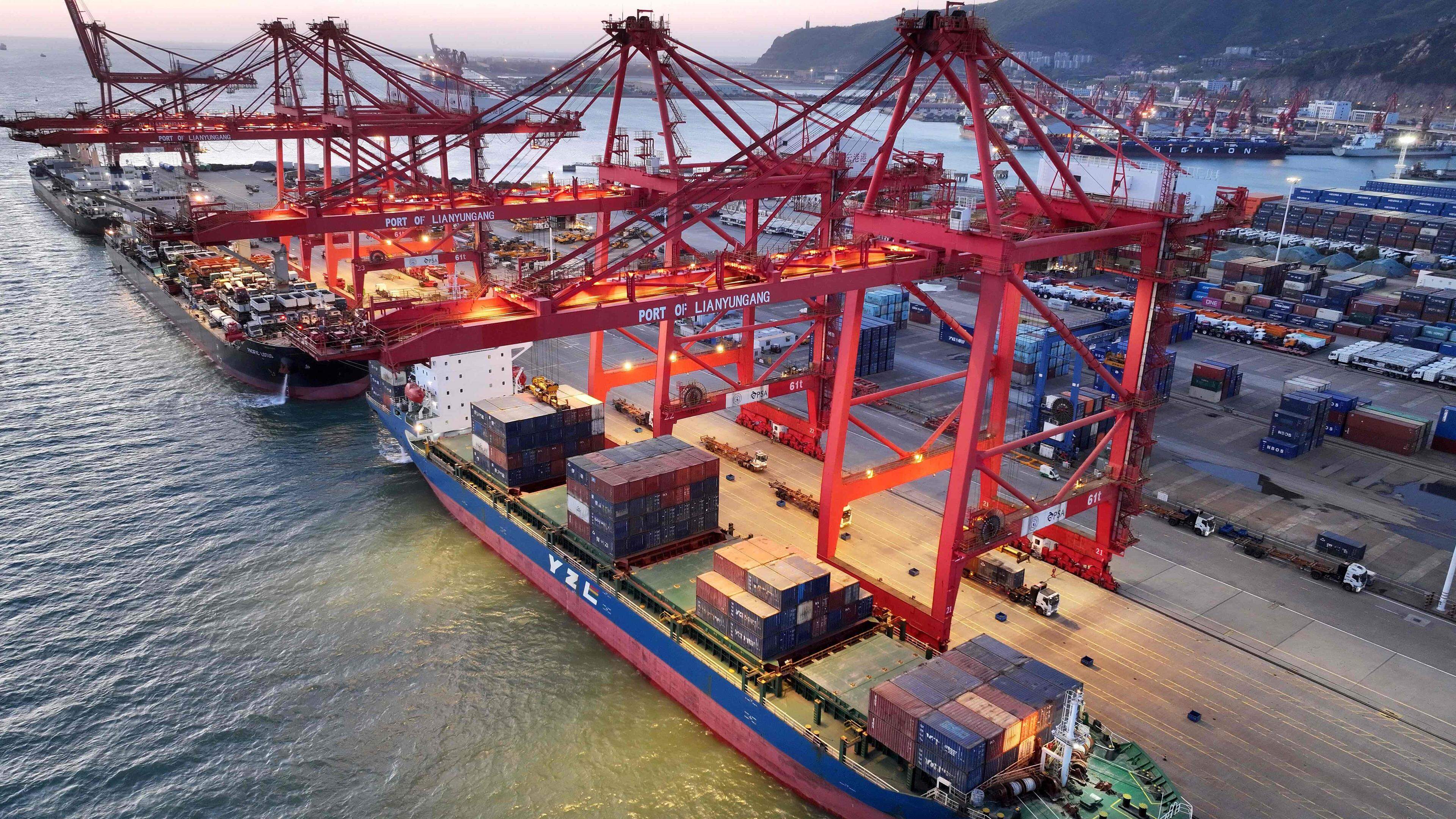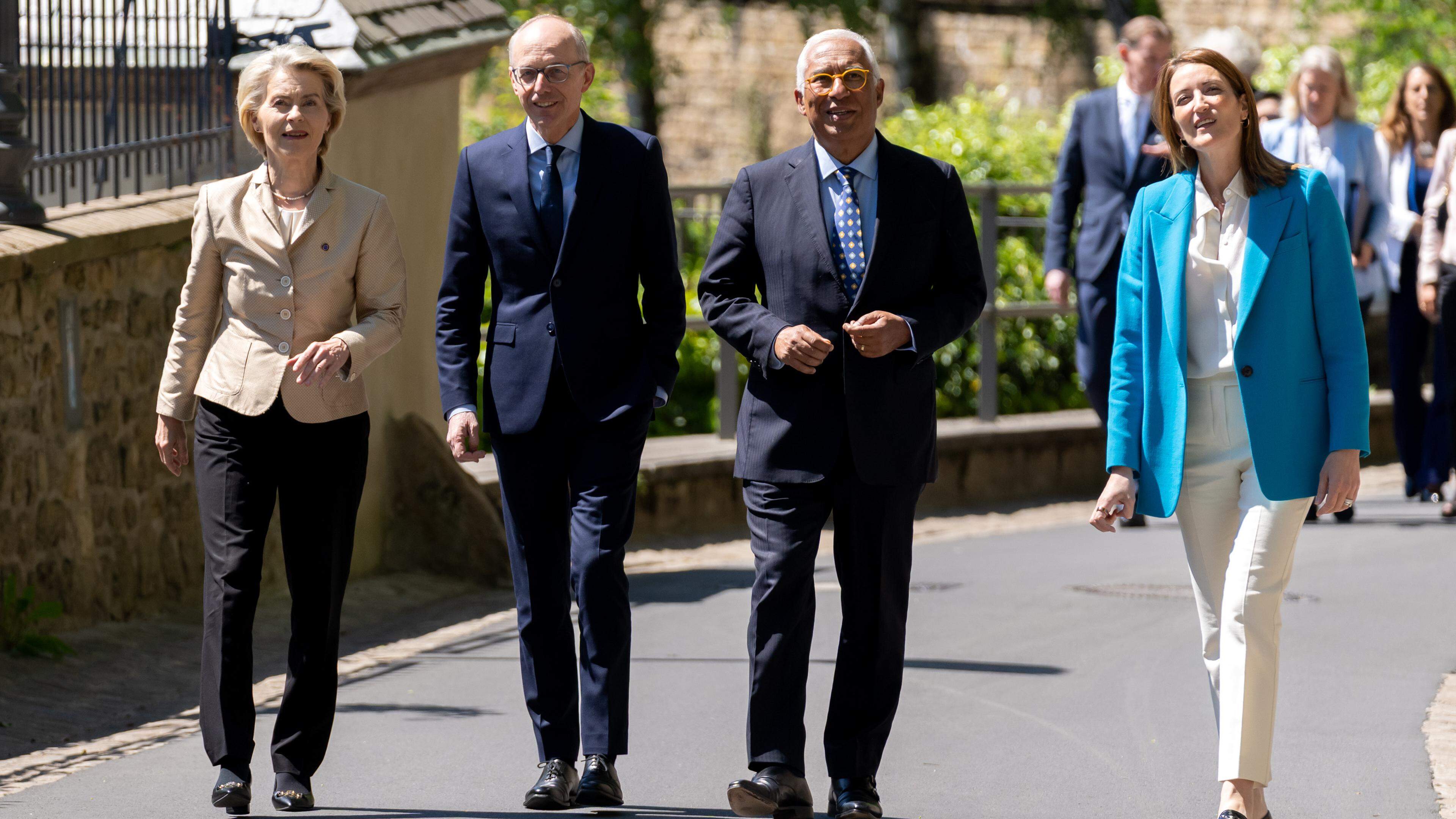China’s foreign trade makes expectations – focus on USA

Surprisingly, China’s exports have not come under the bikes despite the ongoing trade conflict with Washington. But foreign trade with Washington suffered massively, as was the result of data from the customs authority in Beijing. According to information in US dollars, exports rose in April by 8.1 percent compared to the same month of the previous year, imports decreased slightly by 0.2 percent. The surplus was around $ 96 billion (86 billion euros).
Analysts had expected a clearer decline in imports and only weakly increasing exports in advance. In March, the People’s Republic had a huge increase in exports of 12.4 percent compared to the previous year. Experts suspected that companies had built up inventory in front of the tariffs.
In April, China’s exporters apparently managed to ship more into Southeast Asian markets. Exports to Indonesia rose by 36.8 percent. Even after Vietnam (plus 22.5 percent) and Thailand (plus 27.9 percent), significantly more were.
How trading in the United States
The focus was on trade in the United States. In April, US President Donald Trump ordered additional tariffs of 145 percent on goods from China. Beijing countered with 125 percent of imports from the USA and export restrictions of important raw materials. Trump wants to get companies to settle in the USA with tariffs and thus strengthen the production location. Experts think this is difficult.
According to official information, China’s exports to the United States collapsed by 21 percent and imports by 13.8 percent. The trade between the two largest economies in the world has come to a standstill because of the high serves. Washington and Beijing have reportedly already made exceptions in the technology sector for important products from the other country.
The trust of consumers is weakened as a result of a long real estate crisis.
Beijing has prepared well for a possible escalation with the USA in recent years, says Max Zenglein, economist at the Institute for China Studies Merics in Berlin. However, the escalation in the mountain dispute “massive dangers” for the global economy. « In an increasingly characterized by geopolitical rivalry, companies run the risk of getting between the fronts, » says Zenglein.
Where Beijing’s problems are
So far, Beijing has been confident in the customs dispute and, if necessary, emphasized « to fight to the end ». The effects of the tariffs are now becoming clearer. China is already fighting with a weak demand in Germany and high unemployment among young people. The trust of consumers is weakened as a result of a long real estate crisis.
Exports are also an important drive for the Chinese economic engine. Beijing wants to achieve an ambitious growth goal of around five percent this year. The mood in China’s industry is clouded. In the manufacturing trade, less activity in the factories recently indicated. The orders of containers from China with a destination USA also decreased noticeably.
This is how China reacts
A few days before a meeting of representatives of China and the USA, Beijing decided to have economic measures. The leadership wanted to stabilize market expectations with interest rate cuts and more money for loans such as technology or services and help the economic recovery.
Experts have long advised China to focus on more consumption in Germany instead of an industrial policy driven by subsidies. With a program in which humans can exchange old devices or cars and buy new ones at cheaper prices, the tour of already supporting demand tries to support.
Lightblows on weekends?
Observers are looking forward to the coming weekend: US Finance Minister Scott Bessent and the Vice Prime Minister China, who is responsible for economic and trade policy issues, want to talk about the customs dispute in Geneva in Switzerland.
Trump and China: What strategy is behind the trade war?
According to Zenglein, China is trying to take advantage of the disruptions in the global world order in order to present themselves to other countries than the more reliable and better partner.
While the United States was looking for conflict with other countries, China wanted to strengthen economic cooperation and push challenges such as massive trade surpluses into the background, he says. Most recently, state and party leader XI Jinping campaigned for more cooperation when visiting Russia, Vietnam or Malaysia.




/s3/static.nrc.nl/images/gn4/stripped/data131996002-6c8c97.jpg|https://images.nrc.nl/qBL6TZ4zqLcznQhkOOxxqbtQjD0=/1920x/filters:no_upscale()/s3/static.nrc.nl/images/gn4/stripped/data131996002-6c8c97.jpg|https://images.nrc.nl/L7vxCqOHu1xdy-UOaiO4WRgmEZE=/5760x/filters:no_upscale()/s3/static.nrc.nl/images/gn4/stripped/data131996002-6c8c97.jpg)


